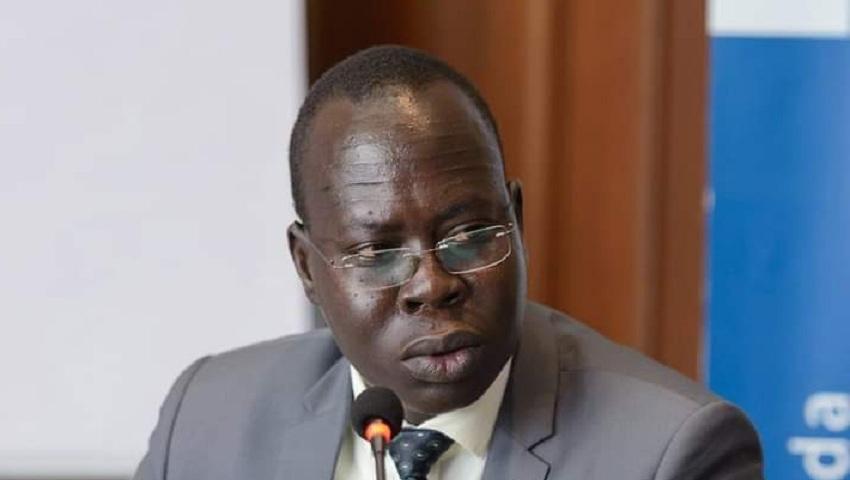Africa-Press – South-Sudan. A prominent South Sudanese civil society leader has condemned a government official’s inflammatory comments about the Nuer ethnic group, accusing him of inciting division and hostility.
The remarks, made during a press conference in Juba on Saturday afternoon, labeled nine out of sixteen counties predominantly inhabited by the Nuer community as hostile to the government.
The government minister of cabinet affairs and secretary of a committee for peace implementation, Martin Elia Lomuro, identified counties such as Rubkona in Unity State, Nasir, and several counties in Greater Akobo as “hostile” to the government.
His comments have sparked a strong backlash from civil society leaders and raised concerns about the deepening ethnic tensions in the country.
In a statement to Sudans Post, Ter Manyang Gatwech, Executive Director of the Centre for Peace and Advocacy (CPA), described the remarks as a form of hate speech against the Nuer people.
He expressed alarm at the minister’s rhetoric, asserting that such divisive statements should not be made by a national leader, particularly one responsible for advancing peace implementation.
“This statement is not only troubling but constitutes direct hate speech towards the Nuer people in South Sudan. Such serious remarks should not be made by a national minister who represents the country,” Gatwech said.
Gatwech also highlighted the role of government figures who oppose peace in exacerbating the conflict, particularly in the Greater Upper Nile region.
He pointed to the ongoing violence in Nasir and Ulang counties of Upper Nile State, where the White Army, an ethnic Nuer militia, has called for the deployment of a unified force to replace pro-government militias.
“The ongoing situation in Nasir and Ulang counties is driven by individuals within your government who oppose peace in South Sudan,” Gatwech stated, referencing the White Army’s demand for the deployment of unified forces as stipulated in Chapter Two of the 2018 peace agreement.
He further criticized the government’s stance towards the Nuer, arguing that it has obstructed the realization of the White Army’s demands, which he claims are crucial for lasting peace in the region.
“The government’s hostile intentions toward the Nuer tribe prevent it from meeting the demands of the White Army. The ongoing conflict could be resolved if we had wise leadership capable of foresight,” he added.
Gatwech drew parallels between the current situation and the deadly violence that occurred in 2013, when members of the Nuer community were targeted in what the African Union Commission of Inquiry on South Sudan described as a state-designed policy of systematic killings.
“In 2013, when the Nuer were killed, there was no conflict. The African Union Commission of Inquiry on South Sudan described the killings of the Nuer as a ‘state-designed policy’ that was systematic in nature,” Gatwech remarked.
He concluded by calling for responsible leadership that prioritizes peace, justice, and social cohesion, stressing the need for leaders who can unite the country rather than further divide its communities.
“South Sudan needs responsible leaders who can foster peace, unity, justice, and social cohesion among its divided communities. We seek connectors, not dividers, to promote peace and reconciliation in society,” Gatwech said.
The recent remarks by the government official come at a time when South Sudan is struggling to implement the 2018 peace agreement, which aims to bring an end to the civil war that has plagued the country since its independence in 2011.
Despite the signing of peace accords, the country remains divided, with ethnic tensions continuing to fuel violence and instability, particularly in regions such as Upper Nile, where Nuer and Dinka communities have been engaged in a complex and destructive conflict for years.
Tensions between the Nuer and Dinka communities have been central to the conflict in South Sudan, particularly during the 2013-2018 civil war, making inflammatory remarks threatening to return of large-scale violence.
Although a peace deal was signed in 2015 and renewed in 2018, the legacy of this ethnic conflict persists, with ongoing violence and instability in areas such as Unity State, Upper Nile, and Jonglei.
For More News And Analysis About South-Sudan Follow Africa-Press






